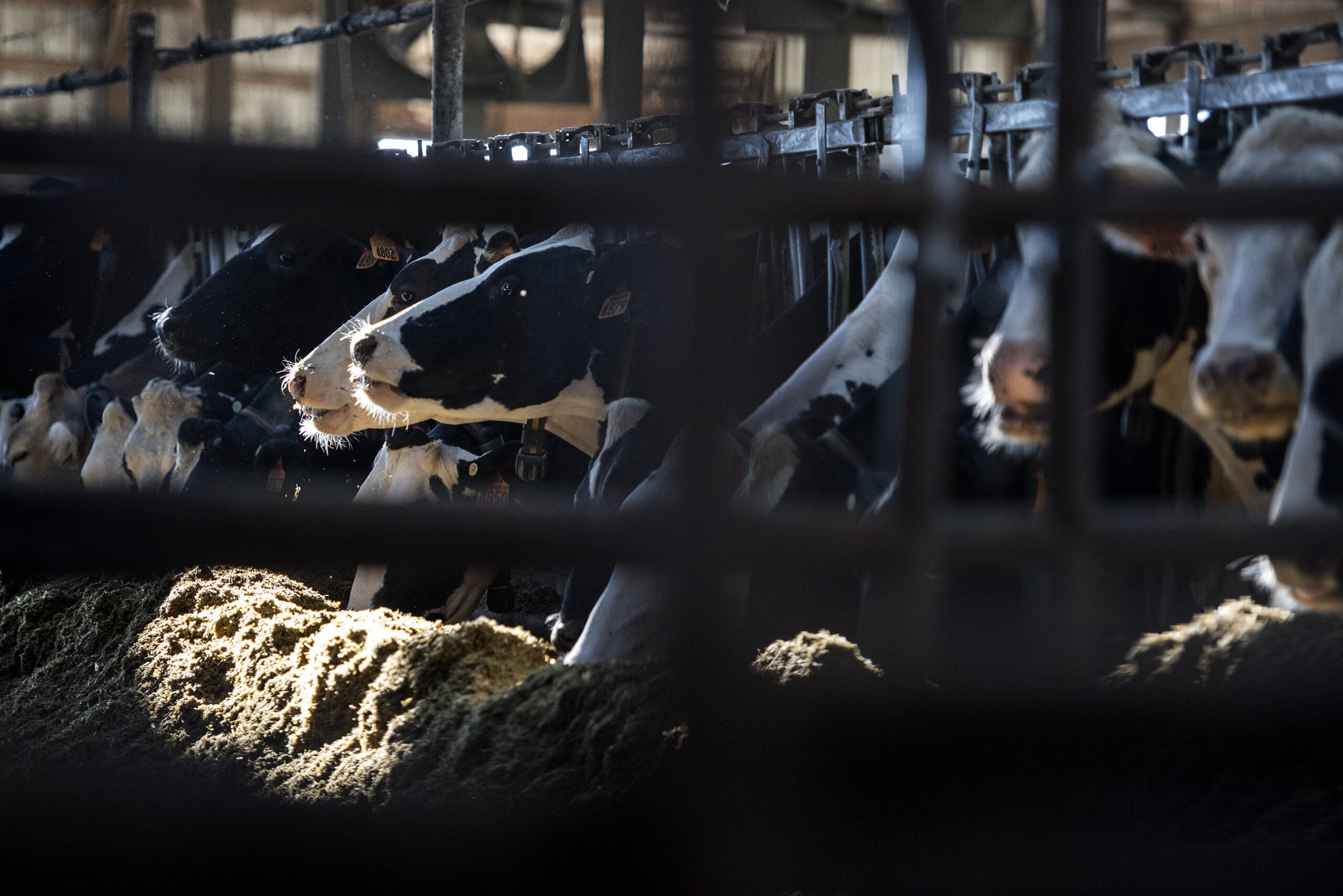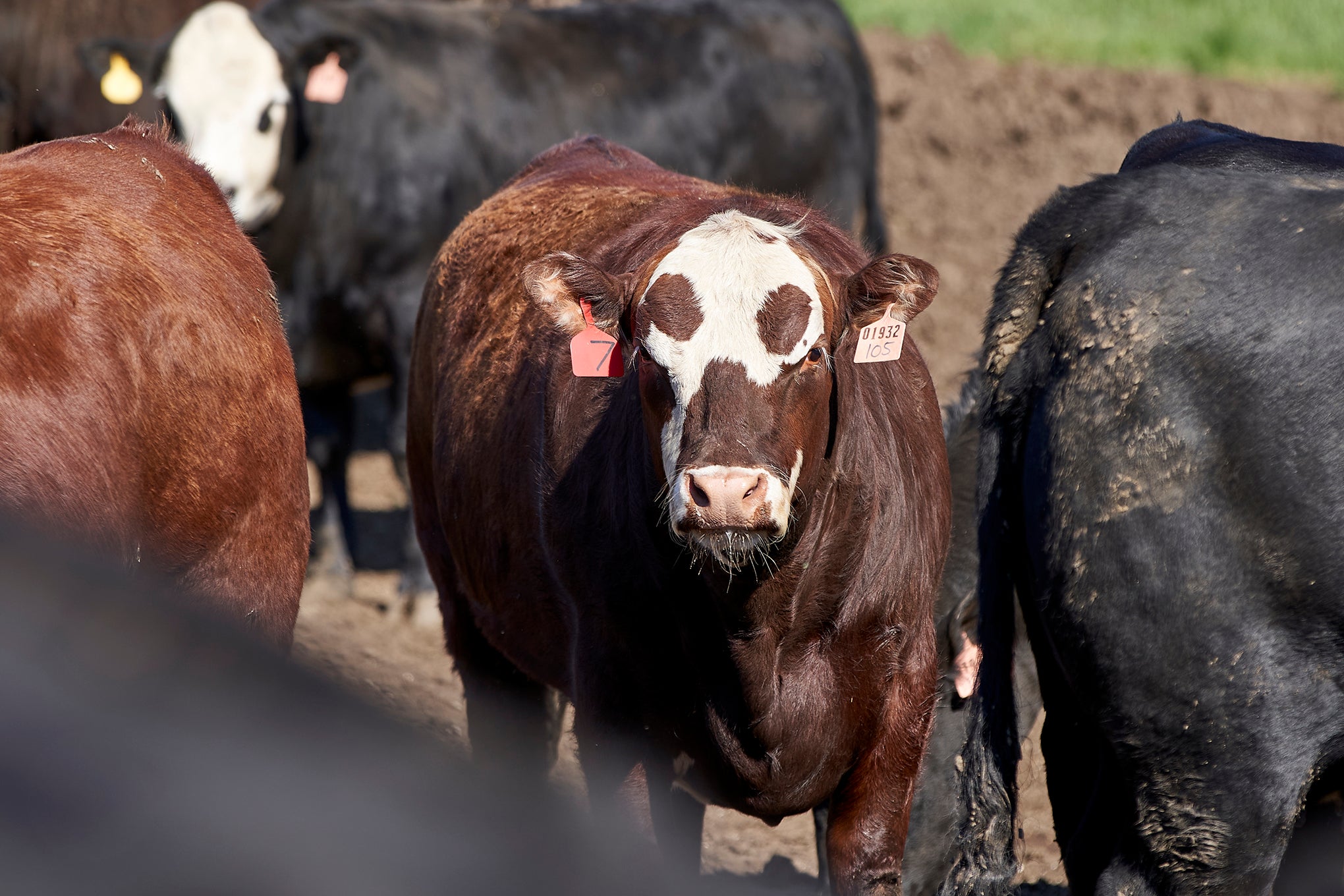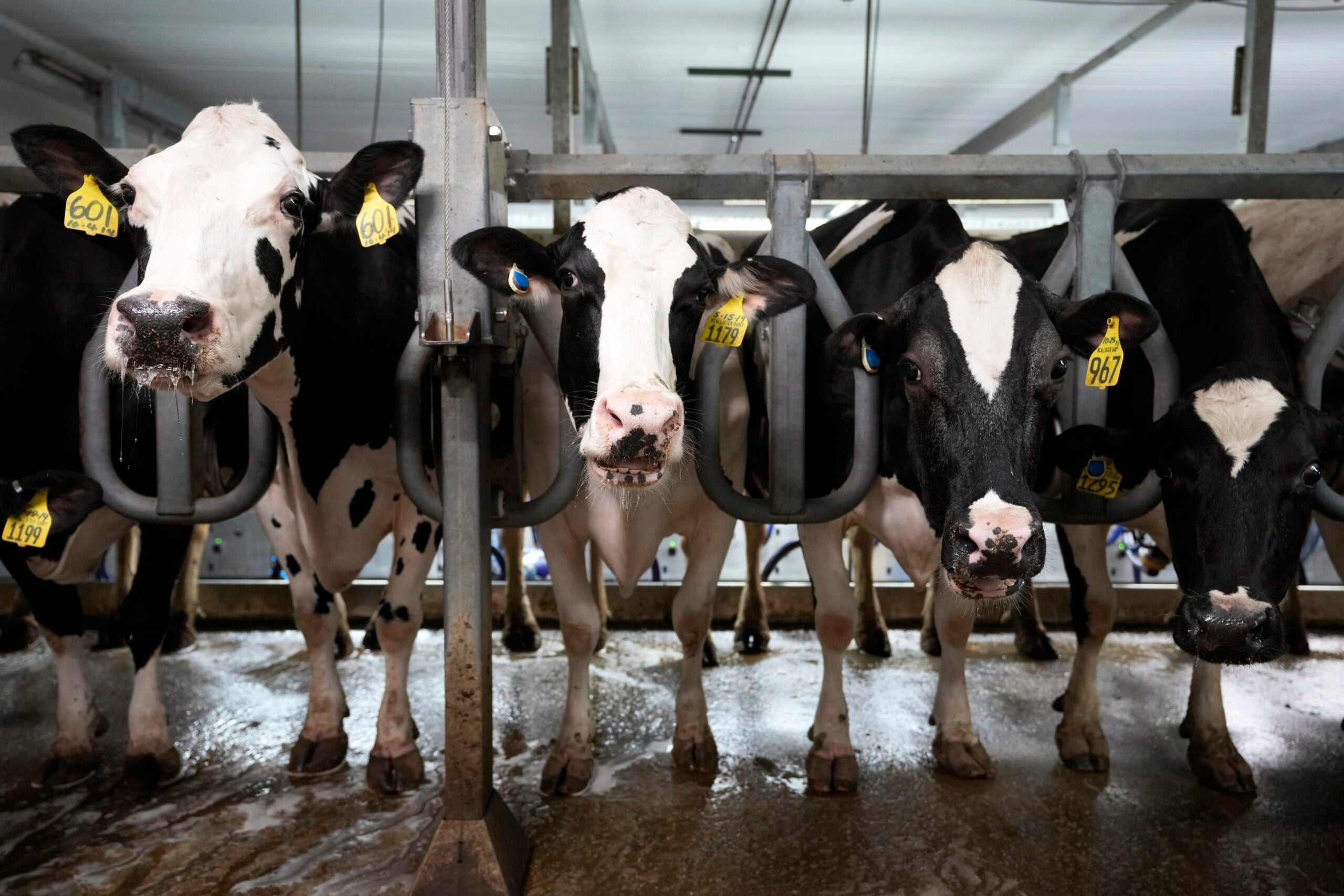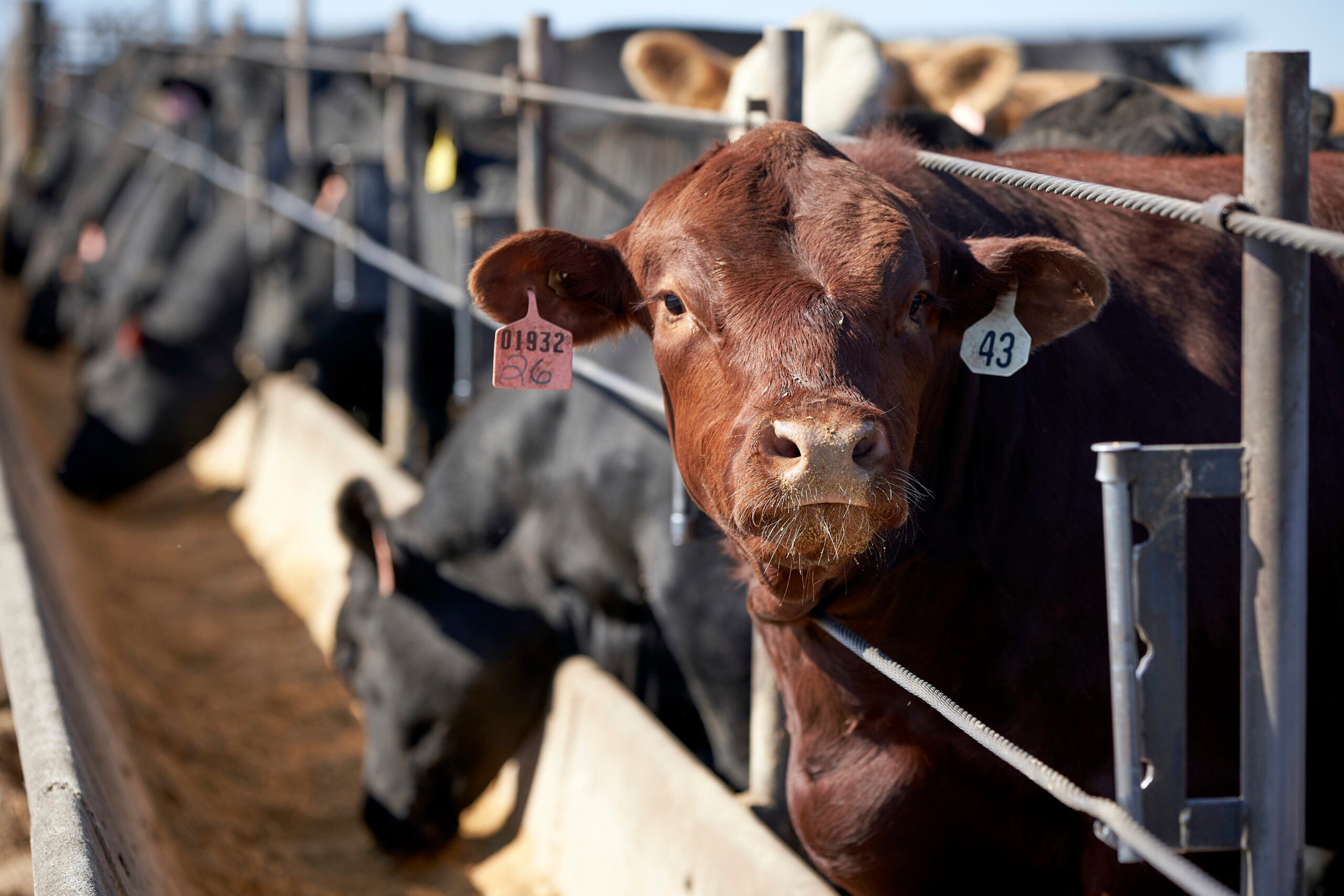Public hearings started this week on a proposed change to how local governments can regulate large livestock farms in Wisconsin.
The state Department of Agriculture, Trade and Consumer Protection is taking public comments on a proposed change to ATCP 51. The 2006 rule outlines how local governments can choose to permit new or expanding livestock farms with 500 or more animals.
DATCP has proposed several changes to the rule, including new requirements for runoff management and odor standards. Agency officials said the changes make farm standards consistent and improve the way local governments apply the rules.
News with a little more humanity
WPR’s “Wisconsin Today” newsletter keeps you connected to the state you love without feeling overwhelmed. No paywall. No agenda. No corporate filter.
On Wednesday, DATCP Secretary Brad Pfaff said agency staff have been working on the changes for years with the ag industry.
“The people of Wisconsin will finally have the opportunity to weigh in on this rule, ensuring the ATCP 51 balances the interests of agriculture, the environment and our rural communities,” Pfaff said during remarks to the state Natural Resources Board meeting.
But John Holevoet, of the Dairy Business Association, said he doesn’t think the agency considered farmers’ perspectives when putting together the revision.
“It is true that they’ve had meetings, both under this administration and the previous administration, with agricultural interests about the rule,” Holevoet said. “There’s a difference between listening and actually acting upon what you hear.”
Holevoet said one of the biggest issues in the new rule is a change to how farms are required to manage odor. The proposal creates a new system for odor management by requiring manure storage, barns and other structures be setback a certain distance from the farm’s property line.
DATCP officials said the new system is similar to regulations in surrounding states.
“What hasn’t been done though is to see how those new setback would work as a practical matter in Wisconsin,” Holevoet said. “So there’s hasn’t been extensive testing done by the department to see how places that were already permitted under the old system would fair under the new system.”
The Wisconsin Farmers Union supports the switch to the setback system. In a memo published earlier this month, Kara O’Connor, government relations director, said the change to operating along property lines will protect neighboring homes and farms.
“It is critical that this element of the draft rules be maintained. Neighbors must be able to protect their current and future property rights on the entirety of their property,” O’Connor said in the memo.
But O’Connor doesn’t support farms’ ability to reduce their setback requirement by adopting odor control practices. In the memo, she said odor control practices, which are used under the current system, are difficult to monitor and enforce.
“DATCP should simply require greater setbacks for new permits, and dispense with credits for odor practices,” O’Connor said in the memo.
According to DATCP, 27 counties and 107 municipalities currently have zoning or permitting ordinances using the ATCP 51 rule.
Holevoet said DBA wants to see more counties utilize the rule and hold all large farms to the same standard.
“In a perfect world, this set of regulations could be a way to bring some uniformity but also to provide a sort of middle ground between farms that are not regulated at all and (confined animal feeding operations or CAFOs) that are pretty heavily regulated,” Holevoet said.
He said the organization worries changing the standards will keep more municipalities from adopting ordinances.
Wisconsin Public Radio, © Copyright 2025, Board of Regents of the University of Wisconsin System and Wisconsin Educational Communications Board.






